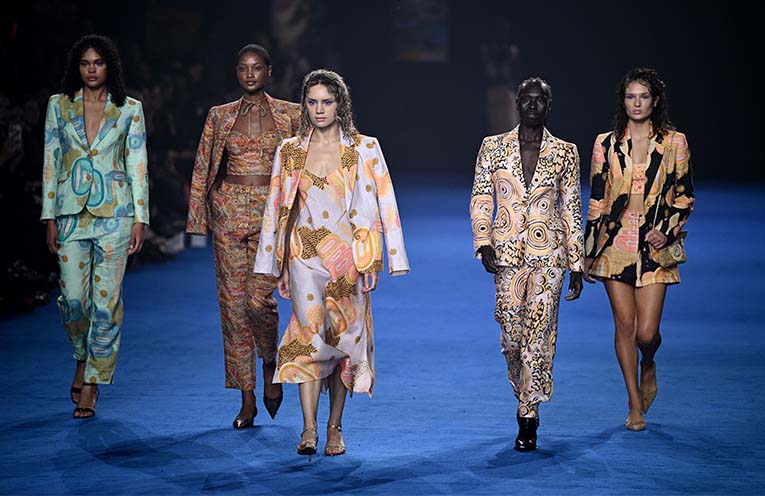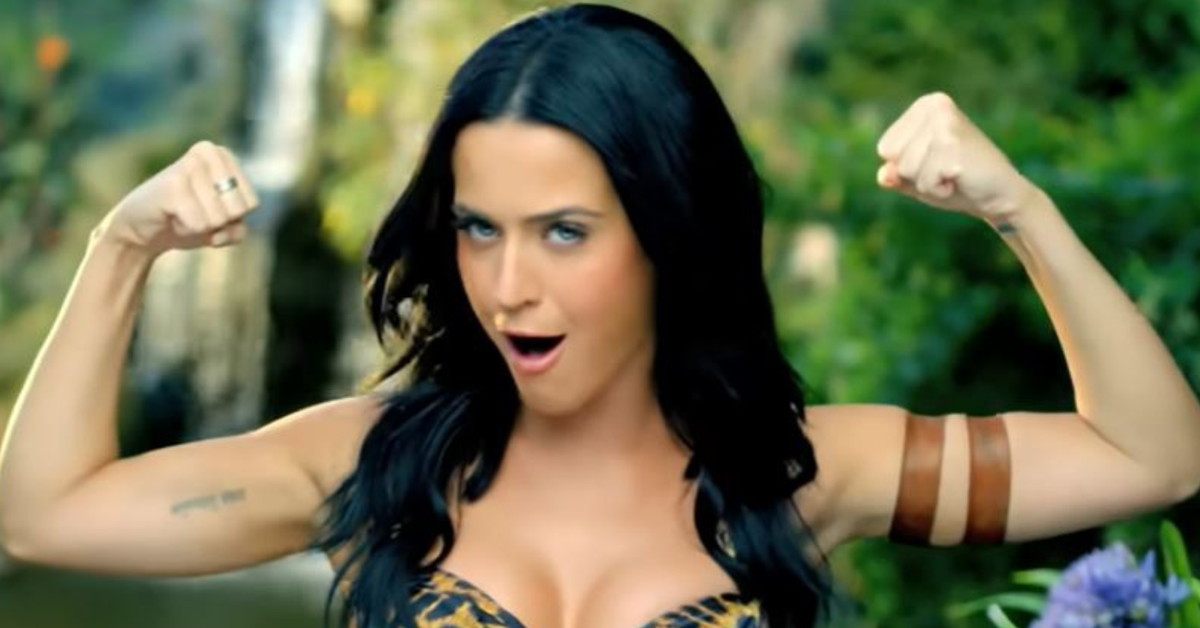Katy Perry defeats Sydney fashion designer in federal court following 13-year-long battle

- by Admin
- November 22, 2024
Pop star Katy Perry has had a big court win in a long-running trademark dispute with a Sydney fashion designer bearing a similar name.
The American singer has successfully appealed a Federal Court ruling from last year over use of the homophonous name and found she had breached copyright on a number of occasions by using the trademark.
A string of legal action was first launched in June 2009 over a trademark held by Katie Jane Taylor, who uses her birth name to design and sell clothes under the brand Katie Perry.
The court initially found in Ms Taylor’s favour, citing trademark infringements during Perry’s 2014 and 2015 Prismatic Tour in Australia, at pop-up stores in Sydney and Melbourne during that tour, and on a website for merchandise company Bravado.
However in a decision in Sydney on Friday, Federal Court found on appeal the trademark must be cancelled, in part because the name was globally synonymous with the I Kissed A Girl singer when it was trademarked and ongoing use may “deceive” and “cause confusion”.
Ms Taylor said she was “devastated” by the judgement and had “lost everything”.
“It is a David and Goliath fight,” she said.
Sydney fashion designer Katie Taylor says the legal system has let her down. (ABC News: Timothy Ailwood)
She is covered by litigation funding from Litigation Capital Management for court costs but will have to pay out of pocket to re-brand her business.
She said the Australian legal system had let her down.
“My intention has always been about standing up, and I think it shouldn’t matter whether or not you’re a pop star or you’re a small business — we all matter,” she said.
“This has taken a huge toll on me and on my family”.
Court finds Perry was already a globally recognised name
The court heard the singer Perry, whose real name is Katheryn Elizabeth Hudson, “honestly adopted” the Katy Perry moniker in 2002, some five years prior to Ms Taylor starting her own label.
In the original judgement, the court found Perry did not have a big enough reputation before the label was established to deceive or cause confusion for the public.
Katy Perry, whose real name is Katheryn Elizabeth Hudson, “honestly adopted” the Katy Perry moniker in 2002, the court found. (Supplied/Katy Perry)
The judge laid out a number of reasons including the difference in spelling of “Katy” versus “Katie” which differentiated the trademarks, and that her name at the time only extended to music, and “had no reputation in clothing”.
But Justices David Yates, Stephen Burley and Helen Rofe found the reputation in the trademark to music and entertainment “overlooked relevant evidence”.
“In concluding that the Katy Perry Mark did not have a reputation in clothes, the primary judge ignored the common practice of pop stars to sell merchandise including clothing at concerts and to launch their own clothing labels,” they said.
“Whilst some die-hard fans of Ms Hudson may recognise the incorrect spelling, the ordinary consumer with an imperfect recollection of the Katy Perry Mark confronted with a garment with Ms Taylor’s Mark on it would be likely to be confused as to the source of the item and wonder whether it was associated with Ms Hudson.”
Definition of ‘clothing’ disputed
Ms Taylor also failed in her challenge to have the definition of the trademark infringement expanded to include hats and shoes.
In the initial judgment, the court found some of the items sold on the Katy Perry tour did not breach trademark infringement because some of the offending items did not fall in to the definition of “clothes”.
Ms Taylor challenged the definition to extend to “headgear, caps, hats and headbands” and appealed the court’s ruling that clothes does not include shoes and headwear.
She told the court that if a person commanded her to “take off your clothes” would “naturally assume that this included all items of clothing”.
However, the court found that because Ms Taylor did not explicitly nominate headgear and footwear in her trademark, “there is no warrant for construing the word ‘clothes’ more broadly now”.
Peaceful co-existence ‘no longer possible’
Katie Jane Taylor registered Katie Perry as a trademark in September 2008. (Supplied)
The court outlined a proposed co-existence agreement drawn up by Perry and presented to Ms Taylor in 2009, which would have allowed them both to trade under their respective brands.
Ms Taylor rejected the proposal.
“The absence of any actual confusion over the many years of co-existence suggests that there has been no confusion on the part of consumers,” court documents said.
Having rejected the offer, Ms Taylor commenced infringement proceedings against Perry and the businesses associated with her brand.
In the latest decision, the justices said in that sense Ms Taylor had “brought this result on herself”.
“Unfortunately, it is no longer possible to return to the time of peaceful co-existence,” they said.
Ms Taylor’s ‘Katie Perry’ trademark will be cancelled unless she applies for special leave to appeal to the High Court.
The court also ordered her to pay Perry’s costs for the appeal and cross-appeal.
The Latest News
-
November 22, 2024Second Australian dies from tainted alcohol in Laos, sixth death reported
-
November 22, 2024‘Boom Boom’ Bumrah puts Australia’s batters on the canvas
-
November 22, 2024Cricket Australia to honour late Phillip Hughes on 10th death anniversary during 2nd BGT Test in Adelaide against India | Sporting News Australia
-
November 22, 2024Aussie duo stun legends with ‘unbelievable’ moment
-
November 22, 2024Indigenous designers hit the end of fashion week runway – News Of The Area





